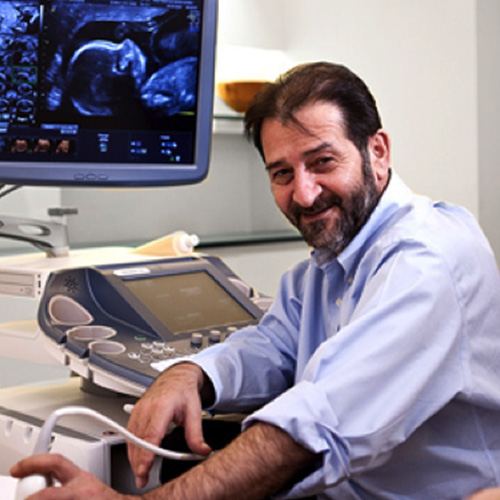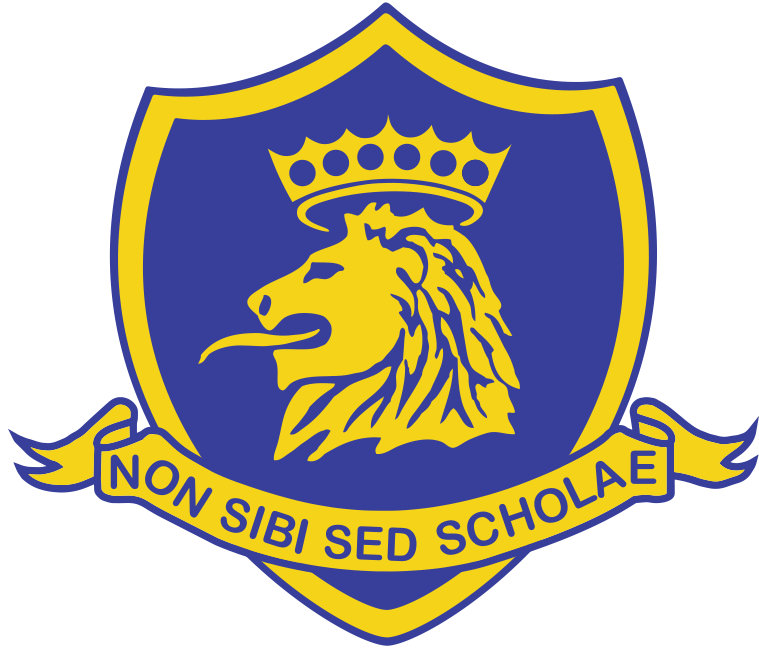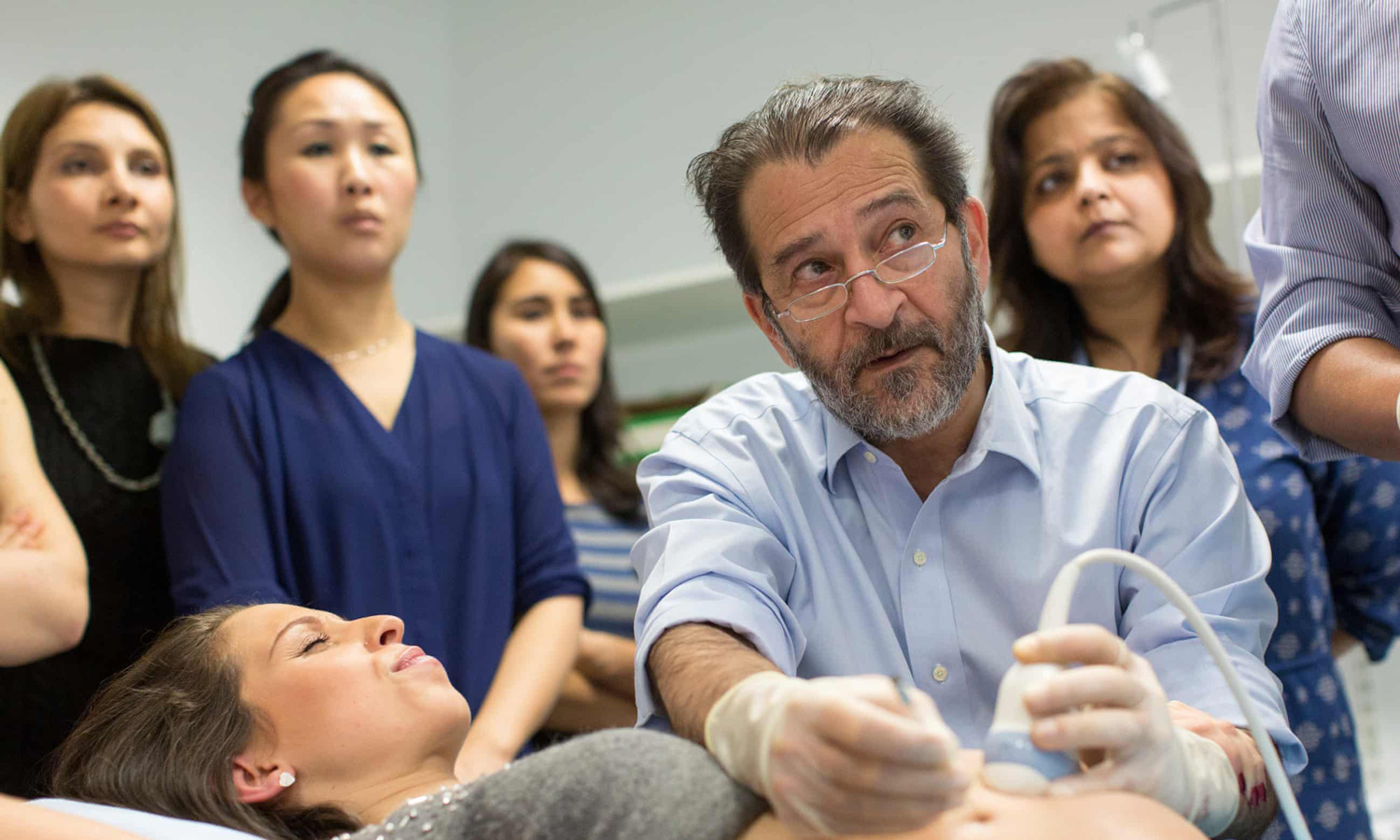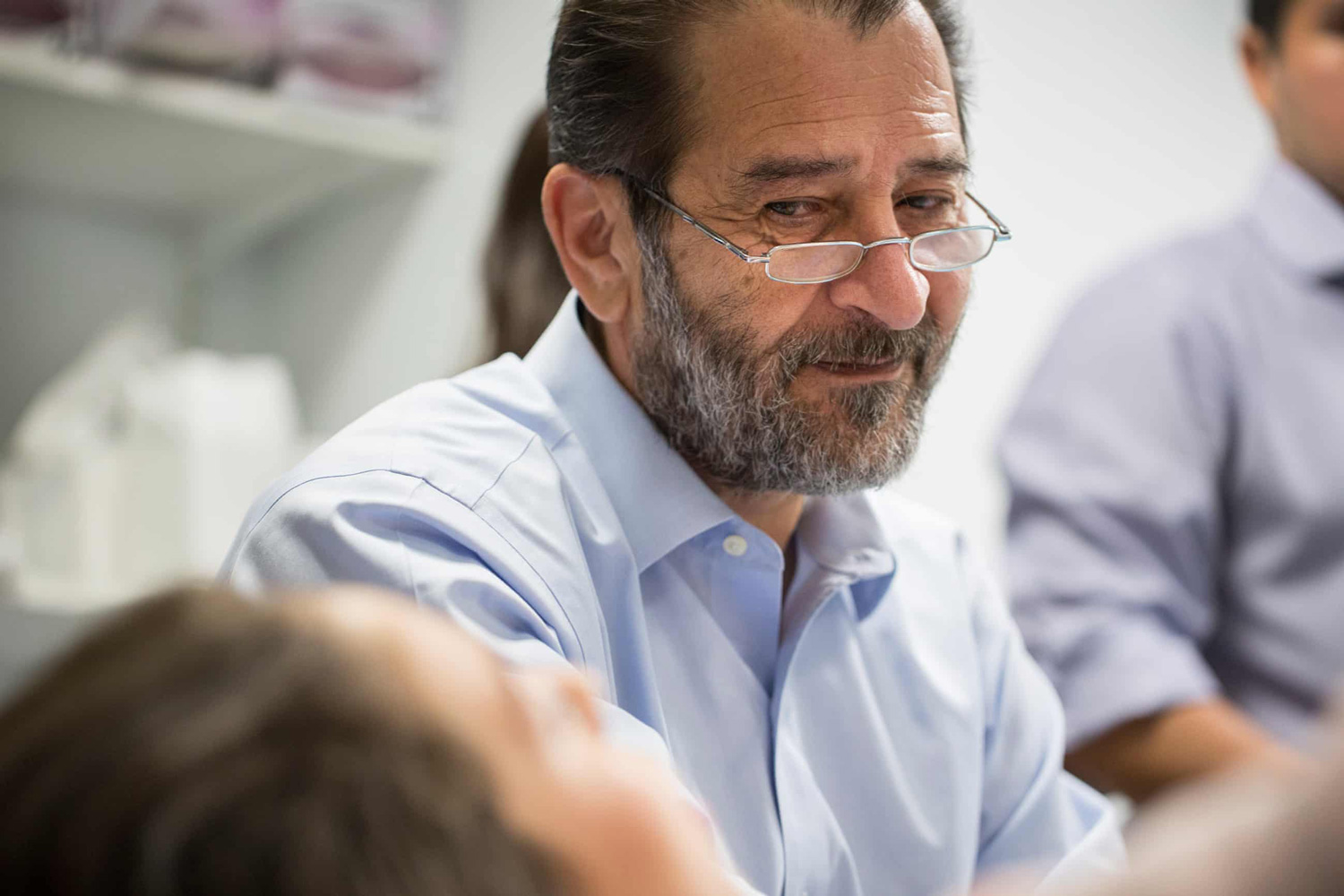Can you tell me where you grew up?
In Cyprus until 17 and then I came to England after my father sent me to England to study. In Cyprus we do military service at the age of 18 for two years but he arranged for me to leave a year before, when the law changed I went back and instead of punishing us they made us officers and I worked for six months in the army. In England I did a degree in biochemistry and then I went to medical school.
Your father was a doctor. Can you tell us about him?
Two things really. First he was one of the very first doctors in Cyprus and certainly the first in our area. He did his degree with no specialization, arrived in Cyprus on a donkey, in the pre-antibiotics era. He treated patients by reading about their problems and he did caesarean sections with the patient using alcohol – if the children survived they would become his godchildren, so he had a few thousand godchildren around! The second thing is that, Cyprus was a colony of the time and he was one of the leaders of the revolution, so when I was two years old, he was arrested and he was sent to a concentration camp for four years and I saw him when he came out when I was six.
And was he still allowed to practice medicine when he came out of the camp?
By that time he was released, he came to England with the leadership of the revolution and they signed an agreement – Cyprus gained its independence. My father was a ‘terrorist’!
You said you studied medicine at Kings. How did you get your interest in ultrasound?
I think it was the fourth year – you know when you have that period of choosing an elective and people pretend they are going to do something useful? Well I’m scared of flying and therefore I didn’t want to go to Hawaii or the Seychelles and at that time a new professor of obstetrics and gynaecology arrived at Kings – a very enthusiastic Scotsman and he came with his ultrasound machine and was very exciting. He came with this unbelievable concept that you could see the fetus. So I did my elective learning how to scan and therefore at that time I was convinced that’s what I want to do.
So I chose ultrasound.
What do you think your greatest strength is?
In relation to work is it something that I got from my father. I never considered medicine as work -as a job- it was a complete devotion, so my whole life revolves around that. So, I am exceptionally boring in anything else.
Think that’s because of your dad?
My father grew up in a village and then he practised medicine and also became a politician. He would arrive at the village and he would see the people and he would discuss everything with them – are they well, are the crops good, and then he would sit in the coffee shop and discuss their medical problems – so medicine was a way of life. What is now over-emphasised is the concept of holistic medicine, taught in lectures that are meaningless, in an era of political correctness. It was the practice at the time, that is what I saw, so I am interested in politics, and I am interested in medicine, and I am interested in people but I have always seen the package of the three together so I never saw medicine as just diagnosis and therapy.
What do you think your biggest weakness is?
I am completely politically incorrect. (Much laughter) And I detest the whole ethos of political correctness. That is creating people without any personality, when they are scared to express their views, and therefore in my field I often get into trouble because of that.
How do you cope with difficult decisions?
Quite often I’m the last in line to take a decision and I have put into my mind my experience, what I know and I take a decision and I stick to that decision and I have to bear the consequences.
If you could only have one meal for the rest of your life what would it be?
One specific meal? Oh my God. It would be some Greek food.
What is the longest you’ve gone without sleep?
When I did my first house job I was in the diabetic department in Kings and there were two consultants and a registrar and me and we were on call. We started on Friday morning and we would be on-call until Sunday night and there would be no sleep until then.
If you could have personally witnessed any event in history what would it be?
A specific moment would be like Mandela walking out of prison. When I was growing up in England, the British government were labelling him as a terrorist, and the ANC was a terrorist organization, but then very, very quickly he became a hero and now they are quarrelling about who will have his statue first!
What do you think the best compliment you’ve received from a patient is?
When they bring me someone and say they owe their life to you. For example the first twins where we did laser and they survived completely unexpectedly, they called one of the twins Kypros. To have an English person in Norwich called Kypros (much laughter ensues). Kypros was born in 1992. I’m not sure how that went down in Norwich in the nightclubs!

There is no better reward in life than a woman coming along to show you her baby,” he says, “and sending photographs to say: ‘Thank you, this baby would not have been born.’ How can you judge that? Against what? That is the ultimate reward.



